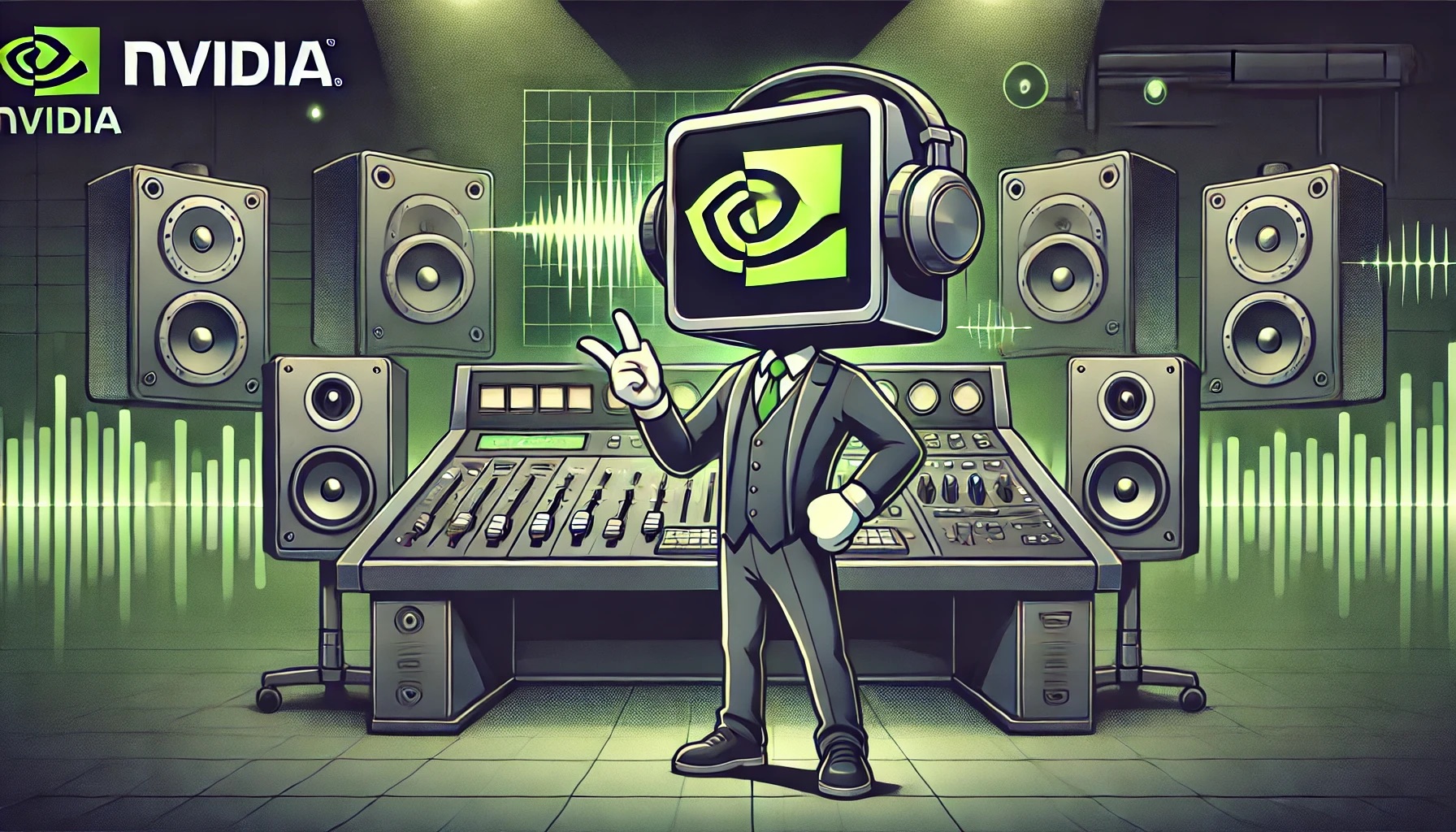Nvidia on Monday introduced Fugatto, a groundbreaking AI model that transforms voices and generates new sounds from text descriptions. Aimed at revolutionizing audio creation in music, film, and gaming, Fugatto showcases unprecedented capabilities, though its public release remains undecided.
Nvidia Introduces Fugatto: A Groundbreaking AI for Audio Creation
On Monday, Nvidia unveiled a new AI model for audio and music creation that can alter voices and create unique sounds; this technology is intended at those who make music, movies, and video games.
Reuters reports that the world's leading provider of AI-related hardware and software, Nvidia, has stated that it does not currently intend to make the technology, which it refers to as Fugatto (an abbreviation for Foundational Generative Audio Transformer Opus 1), available to the public.
Competing Technologies and Nvidia's Unique Features
This technology can be used in conjunction with others that have been demonstrated by startups like Runway and larger companies like Meta Platforms to create audio or video in response to text instructions.
Located in Santa Clara, California! Based on a text description, Nvidia's version can create music and sound effects, including unique noises like a trumpet barking like a dog.
Its capacity to alter preexisting audio is what sets it apart from competing AI systems. This might include, for instance, transcribing a piano line into a human vocal line or altering the accent and emotional tone of a spoken word clip.
Generative AI's Promise and Potential Impact
"If we think about synthetic audio over the past 50 years, music sounds different now because of computers, because of synthesizers," stated Bryan Catanzaro, VP of applied deep learning research at Nvidia. "I think that generative AI is going to bring new capabilities to music, to video games and to ordinary folks that want to create things."
The relationship between tech and Hollywood has grown strained, especially when Scarlett Johansson accused OpenAI of mimicking her voice. This comes at a time when businesses like OpenAI are in negotiations with Hollywood studios about the potential use of AI in the entertainment industry.
Concerns Over Misuse and the Future of AI Models
Per MSN, the new model from Nvidia was trained using data that is already available to the public, but the business is currently considering whether or not to make it publicly available.
"Any generative technology always carries some risks, because people might use that to generate things that we would prefer they don't," said Catanzaro. "We need to be careful about that, which is why we don't have immediate plans to release this."
The developers of generative AI models still haven't figured out a way to stop people from abusing the technology and making things that aren't true, like making characters who aren't copyrighted or false information.
Just like DeepMind and Meta, OpenAI has been mum about when exactly they want to make their video and audio generation models publicly available.



 Hyundai Motor Group to Invest $6.26 Billion in AI Data Center, Robotics and Renewable Energy Projects in South Korea
Hyundai Motor Group to Invest $6.26 Billion in AI Data Center, Robotics and Renewable Energy Projects in South Korea  Anthropic Refuses Pentagon Request to Remove AI Safeguards Amid Defense Contract Dispute
Anthropic Refuses Pentagon Request to Remove AI Safeguards Amid Defense Contract Dispute  Lynas Rare Earths Shares Surge on Strong Half-Year Earnings and Rising Global Demand
Lynas Rare Earths Shares Surge on Strong Half-Year Earnings and Rising Global Demand  Ecuador Raises Tariffs on Colombian Imports to 50% Amid Border Security Dispute
Ecuador Raises Tariffs on Colombian Imports to 50% Amid Border Security Dispute  OpenAI Hires Former Meta and Apple AI Leader Ruomin Pang Amid Intensifying AI Talent War
OpenAI Hires Former Meta and Apple AI Leader Ruomin Pang Amid Intensifying AI Talent War  U.S.-Canada Trade Talks Resume as Trump Administration Reviews USMCA
U.S.-Canada Trade Talks Resume as Trump Administration Reviews USMCA  Netflix Stock Jumps 14% After Exiting Warner Bros Deal as Paramount Seals $110 Billion Acquisition
Netflix Stock Jumps 14% After Exiting Warner Bros Deal as Paramount Seals $110 Billion Acquisition  Trump Media Weighs Truth Social Spin-Off Amid $6B Fusion Energy Pivot
Trump Media Weighs Truth Social Spin-Off Amid $6B Fusion Energy Pivot  Venezuela Oil Exports to Reach $2 Billion Under U.S.-Led Supply Agreement
Venezuela Oil Exports to Reach $2 Billion Under U.S.-Led Supply Agreement  Australian Dollar Rallies on Hawkish RBA Outlook; Yen Slips as BOJ Faces Political Pressure
Australian Dollar Rallies on Hawkish RBA Outlook; Yen Slips as BOJ Faces Political Pressure  China’s New Home Prices Post Sharpest Drop Since 2022 Amid Ongoing Property Slump
China’s New Home Prices Post Sharpest Drop Since 2022 Amid Ongoing Property Slump  Nintendo Share Sale: MUFG and Bank of Kyoto to Sell Stakes in Strategic Unwinding
Nintendo Share Sale: MUFG and Bank of Kyoto to Sell Stakes in Strategic Unwinding  Tokyo Core Inflation Slows Below 2%, Complicating BOJ Rate Hike Outlook
Tokyo Core Inflation Slows Below 2%, Complicating BOJ Rate Hike Outlook  Trump Warns Iran as Gulf Conflict Disrupts Oil Markets and Global Trade
Trump Warns Iran as Gulf Conflict Disrupts Oil Markets and Global Trade  Coupang Reports Q4 Loss After Data Breach, Revenue Misses Estimates
Coupang Reports Q4 Loss After Data Breach, Revenue Misses Estimates  Toyota Plans $19 Billion Share Sale in Major Corporate Governance Reform Move
Toyota Plans $19 Billion Share Sale in Major Corporate Governance Reform Move  Samsung Stock Hits Record High on Nvidia HBM4 Supply Deal, Boosting AI Chip Rally
Samsung Stock Hits Record High on Nvidia HBM4 Supply Deal, Boosting AI Chip Rally 































